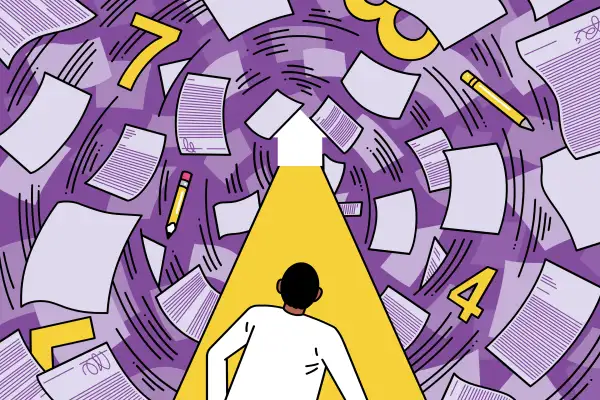Procrastinators, It's Not Too Late to Refinance Your Mortgage and Save Thousands

Mortgage rates keep falling, yet many homeowners are still sitting on the sidelines waiting to refinance.
Rates have been dropping steadily since the coronavirus crisis began, spurring a refinancing boom. According to mortgage data firm Black Knight, servicers originated more than 2.3 million refinance loans in the second quarter of 2020, the highest volume in nearly 17 years. With rates below 3%, a recent Black Knight study found that 19.3 million homeowners stand to knock at least 0.75% off their current mortgage rate by refinancing.
Homeowners have held off on refinancing for several reasons, says Kevin Hall, who oversees home lending at Navy Federal Credit Union. “Rates have been low for a while now, so we could be seeing a situation where someone refinanced a couple years ago, and they feel like they’re in a decent place in terms of rates, so they just don’t think they need to refinance,” he says.
Others may be waiting because they’re trying to time the mortgage market, which Heather McRae, a senior loan officer at Chicago Financial Services, says is a big mistake. “Interest rates will be impacted by the results of the election, a covid vaccine, and anything else you can imagine,” says McRae. “Instead of trying to time a refinance, it is best to consider refinance options that improve what your current mortgage situation is.” McRae has also seen clients who are hesitant to refinance because they fear they’re going to lose their job, which would cause their refinance to fall through.
The decision to refinance (or not), Hall says, hinges on several factors, such as what a homeowner’s goal is for trading in their mortgage and what shape their finances are in. Here are five questions to determine whether right now is the right time for you to refinance your home loan.
READ MORE: THE BEST PLACES TO LIVE IN 2020
How long do I plan to own my home?
Jack Guttentag, author of The Mortgage Encyclopedia: The Authoritative Guide to Mortgage Programs, Practices, Prices and Pitfalls, says one factor homeowners should always consider before refinancing is how much longer they plan to stay in their home. “If your time horizon is very short, you may not have enough time to recoup your closing costs,” he says.
These days the general guideline is a 0.5 percentage point drop in rates or more makes it worth your while to refinance, but there are a couple caveats. “My rule of thumb is if you can’t break even on your closing fees in four years or less, it’s probably not a good idea to refinance, even if you plan to stay in the home longer, because your money could be growing faster in other investments,” says Tammi Lindley, a loan officer at Mortgage Express in Portland, Oregon.
Moreover, refi closing costs usually run 3% to 6% of your loan amount. So on a $300,000 mortgage, you’d have to fork over between $9,000 and $18,000. Many lenders, though, offer what’s called a no-cost refinance, where they bake the closing fees into the loan in the form of a higher interest rate. What that means is: “If the rate you can get on a no-cost refi is below the rate on your current mortgage, then there’s no reason not to [refinance],” Guttentag says.
How’s my credit score?
Typically borrowers need at least a 740 credit score to qualify for the best mortgage rates, which is why it’s important to check your credit score before shopping for a new loan.
If your credit score has taken a hit during this economic crisis—say, because you got laid off and missed a few credit card payments—you may want to take some time to improve your credit before applying for a refinance. Paying down debt and asking for credit line increases are two ways to boost your credit score.
Am I in a hurry?
Patience is a requirement for refinancers in today’s mortgage market. Lenders are dealing with high loan demand and staffing shortages. As a result, refis are taking longer to process. Hall says turn times can be as long as 120 days depending on the lender’s workload. (Normally, refis are processed in 45 to 60 days.)
Another reason refinancing is taking a while: “Typically lenders prioritize purchases over refinances, because buyers are on a deadline,” says McRae. Also, because home appraisers are swamped, many refinancers are waiting in a long line to have their appraisal performed. (Pro tip: “Ask your loan officer upfront what their average escrow period is,” Lindley suggests.)
In addition, make sure you factor in time to shop around. You’ll want to get quotes from three or four lenders, McRae recommends, since rates can vary depending on a lender’s pricing algorithm. For example: in San Francisco, taking the first mortgage offer you receive without shopping around could cost you more than $66,000 in interest over the life of your loan, a recent LendingTree study found.
READ MORE: THE BEST PLACES TO LIVE IN 2020
Do I have my paperwork in order?
If it’s been more than a decade since you last refinanced or purchased a home, be prepared to provide significantly more paperwork when you apply for your new loan. “Even if you have an 800 credit score and a boatload of money, the underwriting requirements are incredibly strict right now,” McRae says.
Even though technologies such as e-signatures have helped streamline the application process, many lenders are requiring borrowers to provide documents for employment verification several times throughout the refinancing process, since a lot of people are still losing jobs. “It’s not ideal, but that’s the situation we’re in during the pandemic,” McRae says.
More From Money:
The Best Places to Live in 2020
Mortgage Rates Vary From State to State. Here's How to Get the Best Deal if You're Moving
The Ultimate Guide to Ditching the City and Moving to the Suburbs
